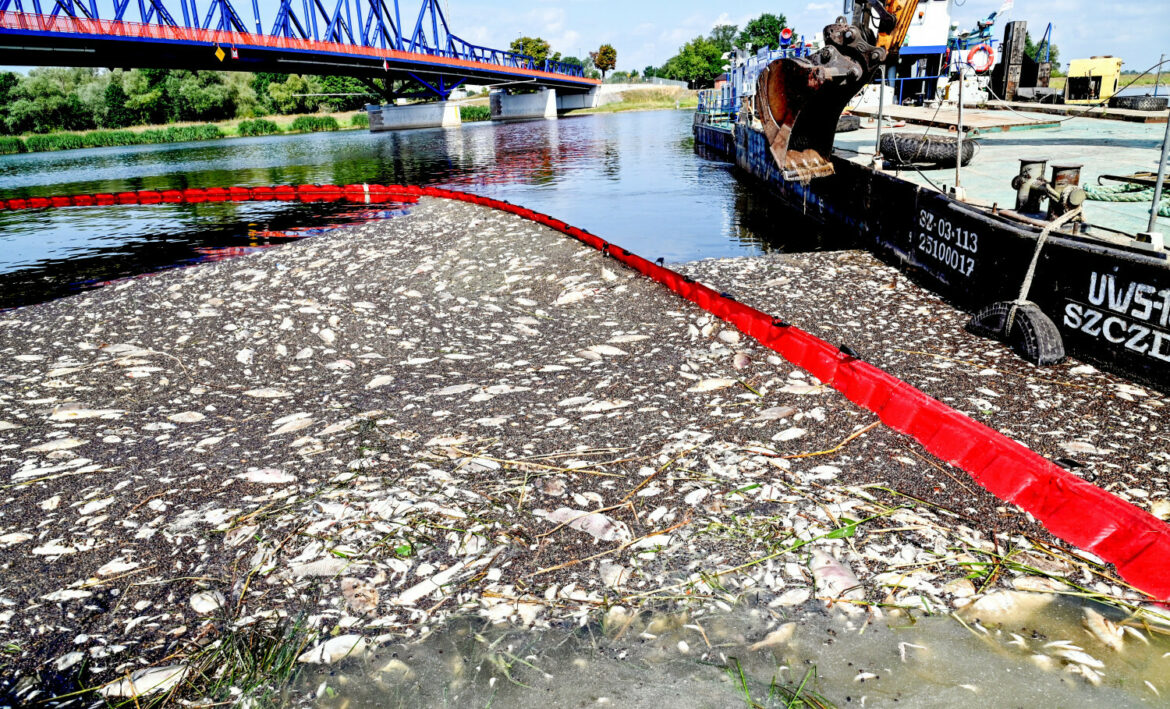The Council of Ministers meeting on 16 August will debate tougher penalties for poisoning the environment. This was the declaration made by Prime Minister Mateusz Morawiecki in response to the environmental disaster on the Odra River.
“Poland’s beautiful nature is our common heritage. Forests, lakes and rivers are our national asset”, said Mateusz Morawiecki during a visit to the Odra River town of Uraz in the Lower Silesian Voivodeship. The Prime Minister stressed that he would do his best not only to fully clarify the causes of this fatal ecological incident but also to set up preventive mechanisms. “The government is planning to tighten penalties against individuals and institutions that pollute Polish rivers and lakes”, he announced.
Meanwhile, as reported by the Chief Inspectorate for Environmental Protection (GIOŚ), testing of water samples from the Odra River on the Polish side of the border in the Lubuskie Voivodeship, carried out continuously since 10 August by the GIOŚ Central Research Laboratory, did not confirm the presence of mercury.
The Chief Inspectorate of Environmental Protection also presented the test results made available on Monday 15 August by the German side.
GIOŚ emphasized that analysis of sampling maps showed that sampling by the Polish side was carried out in the Odra border flow in the Lubuskie Voivodeship. On the German side, on the other hand, samples were taken in the oxbow lakes and tributaries of the Odra.
German testing showed the presence of mercury and indicated that surface water standards were exceeded. This indicator did not exceed the limit for drinking water.
The inspectorate recalls that mercury is an element that occurs in various chemical compounds in the environment, including in the aquatic environment. Mercury compounds are both present in flowing water and especially accumulate in the bottom sediments of rivers, canals and reservoirs. Higher concentrations of various types of mercury compounds can occur due to industries operating in the area.
Adrian Andrzejewski





